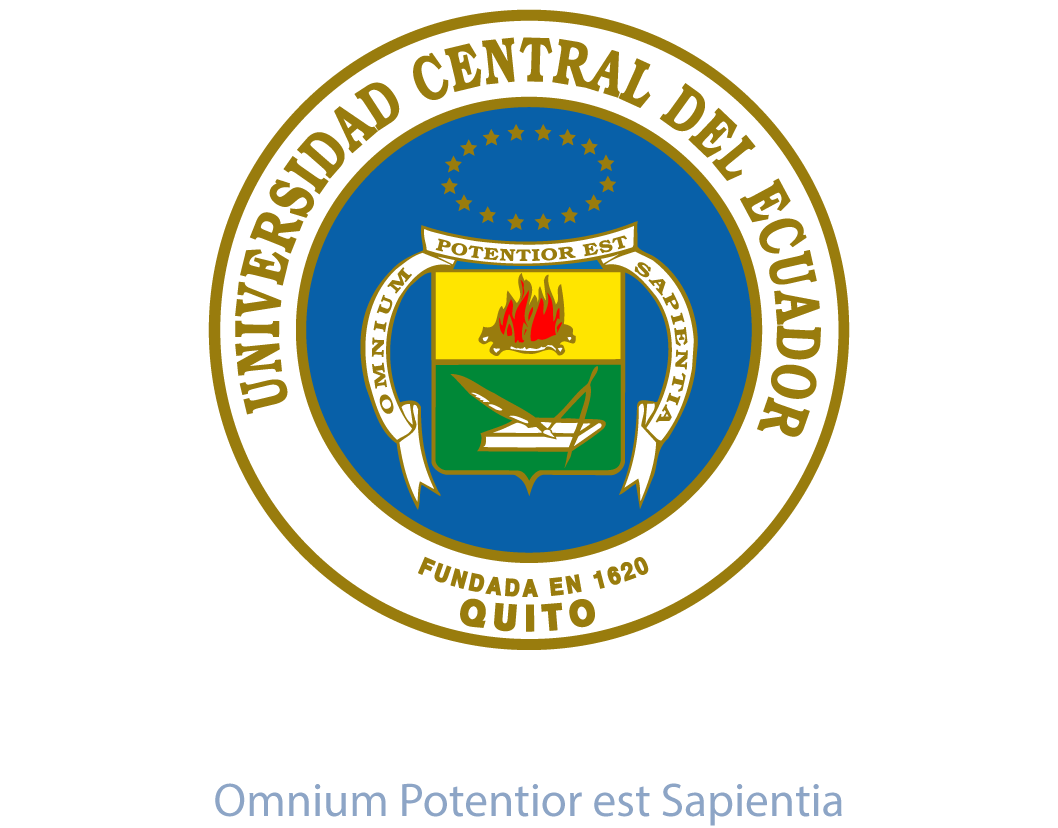Visualització del contingut web
GARRAPATAS
Socio-eco-epidemiología de garrapatas, parásitos transmitidos por garrapatas, resistencia a los acaricidas y efectos residuales de los acaricidas en el ganado tropical ecuatoriano: impactos en la salud medioambiental, animal y pública
Autoridades:
Richar Iván Rodríguez Hidalgo
Director
RESUMEN DEL PROYECTO
Cattle ticks are a great concern for livestock in tropical regions of Ecuador. Reductions in productivity and pathogen transmission associated to tick bites result in economic losses for cattle owners. Abuse of chemical products for tick control has favored the development of acaricide resistance in cattle farms in Ecuador, complicating tick control. Furthermore, active acaricide residuals in foodstuffs and the environment may affect public health. Many stakeholders rely on incomplete information for marketing, purchase and treatment, so that improving the knowledge driving practices is of prime importance, but must rely on thorough study of decision-making criteria. We will investigate the socio-eco-epidemiology of cattle ticks, tick-borne parasites, acaricide resistance and the presence of acaricide residuals in Ecuadorian cattle farms, their production and their environment. We will elaborate a pilot program for integrated management of tick and tick-borne parasites. We are planning seven studies in two parts. The first part investigates association between ticks, tick-borne parasites, host resistance, acaricide resistance and farm management and environmental factors. Furthermore, food stuffs, feces and urine and soil samples will be collected to assess the presence of acaricide resistance. The second part and set of studies will assess determinants of farmer behavior and establish the economic losses associated with ticks and related issues. All studies will feed into the economic study to assess various options for sustainable management of ticks and the parasites they transmit to cattle. While livestock farming is the primary focus of this proposal, our topic is of interest to public health through the zoonotic potential of some tick-borne pathogens, the issue of acaricide residuals in the food chain (risk assessment), and farmers welfare. We will involve stakeholders along the process and communicate study results in a form relevant cattle owners.
Visualització del contingut web
Visualització del contingut web
INFORMACIÓN
- ANTECEDENTESclose
- DOCUMENTACIÓNclose
- BENEFICIARIOSclose
- RESULTADOS ESPERADOSclose
Visualització del contingut web
Visualització del contingut web
INVESTIGACIÓN EQUIPO DE
- RICHARD RODRIGUEZclose
- SUSANA ARCINIEGAS ORTEGAclose
- DARIO ALEXANDER CEPEDA BASTIDASclose
- BLANCA CECILIA PEREZ ESCALANTEclose
- SANDRA INES ENRIQUEZ MORILLOclose
- JORGE EDUARDO GRIJALVA OLMEDOclose
- XIMENA PÉREZ OTÁÑEZclose
- ADRIANA VALERIA PAUCAR QUISHPEclose
Visualització del contingut web
Noticias
-
INICIO DEL PROYECTO
Leer máscloseINICIO DEL PROYECTO
juliol 08, 2020 |This proposal arises from the need to contribute to the adoption of policies and protocols in farmers to improve cattle production and its sustainability in Ecuador, with a focus on tick-related issues. Since 2012, the South Coordinator has been leading research on cattle ticks to evaluate their importance as parasites and disease vectors with Dr. Madder and Prof. Vanwambeke. In 2014, Dr. Rodriguez applied for a Postdoc National fellowship at Central University of Ecuador in collaboration with Prof. Vanwambeke to analyse resistance to chemical acaricides and assess the genetic basis of Amitraz resistance in tropical areas of Ecuador. In 2016, an ARES project allowed CIZ and Dr. Rodríguez to collaborate further with Prof. Vanwambeke to evaluate the spatial structure of cattle tick burdens and the role of ecological and management factors on tick infestations and acaricide resistance. This generated several interesting leads about the spatial distribution of acaricide resistance that have direct use in the management and control of ticks. These results were presented in the International Congress on Tropical Veterinary Medicine in Argentina in 2018 and a publication is being prepared.
Visualització del contingut web
PRODUCCIÓN CIENTÍFICA
- Publicaciónclose
